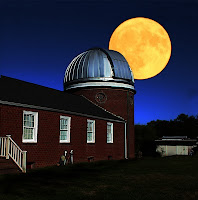Less of Our Light for More Star Light
With half of the world’s population now living in cities, many urban dwellers have never experienced the wonderment of pristinely dark skies and maybe never will. This loss, caused by light pollution, is a concern on many fronts: safety, energy conservation, cost, health and effects on wildlife, as well as our ability to view the stars. Even though light pollution is a serious and growing global concern, it can be one of the easiest environmental problems you can address through responsible lighting on local levels.
Participation in the international star-hunting campaign, GLOBE at Night, helps to start the process of addressing the light pollution issue locally as well as globally. The campaign invites everyone all over the world to record the brightness of the night sky. The campaign runs from March 22 through April 4 in the Northern Hemisphere and March 24 through April 6 in the Southern Hemisphere. The campaign is easy and fun to do. First, you match the appearance of the constellation Leo or Crux with simple star maps of progressively fainter stars found. Then you submit your measurements, including the date, time, and location of your comparison. After all the campaign’s observations are submitted, the project’s organizers release a map of light-pollution levels worldwide. Over the last six annual 2-week campaigns, volunteers from more than 100 nations contributed over 60,000 measurements, 30% of which came from last year’s campaign.
To learn the five easy steps to participate in the GLOBE at Night program, see the GLOBE at Night website. You can listen to this year’s 10-minute audio podcast on light pollution and GLOBE at Night. Or download a 45-minute powerpoint and accompanying audio. GLOBE at Night is also on Facebook and Twitter. (See the links at the end.)
The big news is that children and adults can submit their measurements in real time if they have a smart phone or tablet. To do this, you can use the web application. With smart phones and tablets, the location, date and time are put in automatically. And if you do not have a smart phone or tablet, there are user-friendly tools on the GLOBE at Night report page to find latitude and longitude.
For activities that have children explore what light pollution is, what its effects are on wildlife and how to prepare for participating in the GLOBE at Night campaign, see the Dark Skies Rangers activities. Monitoring our environment will allow us as citizen-scientists to identify and preserve the dark sky oases in cities and locate areas where light pollution is increasing. All it takes is a few minutes during the 2011 campaign to measure sky brightness and contribute those observations on-line. Help us exceed the 17,800 observations contributed last year. Your measurements will make a world of difference.














